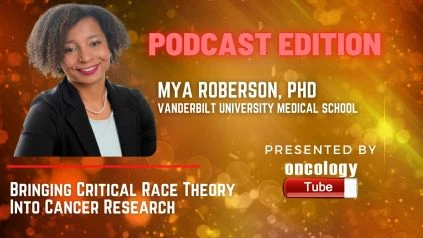Mya Roberson, Ph.D., Assistant Professor Health Policy at Vanderbilt University Medical School. In this video, she speaks about the article Let’s get critical: bringing Critical Race Theory into cancer research.
Â
Critical Race Theory (CRT) was first defined in American academic legal study to describe the social creation of racial categories as a tool of oppression, as well as the systemic existence of racism in society. CRT is a term that refers to the societal power that allows one dominant socially constructed racial group to marginalize others, and it is not exclusive to the United States. Scholars in the health sciences have attempted to find links between CRT and health outcomes, despite the fact that it was originally designed in a legal setting. Incorporating four important tenets: contemporary patterns of race relations, knowledge production, conceptualization and measurement, and action2, Chandra Ford and Collins Airhihenbuwa established the Public Health Critical Race Praxis as a framework for understanding CRT in a health setting. The premise that the process of racialization, and hence racism, shapes societal and personal phenomena, including the conduct of research, lies at the heart of these four fields. This article discusses the crucial historical and contemporary role of CRT in the cancer research enterprise, including basic, clinical, translational, and population health sciences, using four core concepts of the Public Health Critical Race Praxis as a guide.

